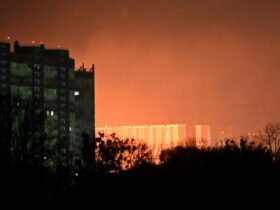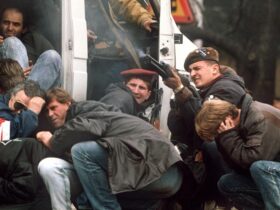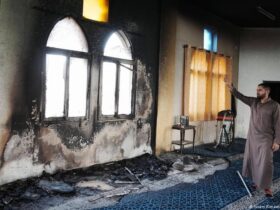According to the latest information, Sahel region of Africa is a hotspot of terrorism. global terrorism indexPublished by the Institute for Economics and Peace. About 51% of global terrorism-related deaths have been recorded in the Sahel, where two al-Qaeda-linked groups are expanding.
Jamaat Nusrat al-Islam wal Muslimeen (JNIM) and the so-called Islamic State groups are behind the wave of terror in the Sahel, especially in Burkina Faso, Mali and Niger.
These groups are rapidly spreading south and are also infiltrating countries such as Benin, Togo, Côte d’Ivoire and Ghana.
Attacks on military posts and civilians remain a persistent threat in Benin’s northern border towns. In April 2025, JNIM militants killed at least 54 soldiers along the border they share with Burkina Faso and Niger. Togo has also seen a similar increase in terrorist attacks.
Why the coast?
A corridor for terrorist groups to escape military attacks, the long stretch of coastal West Africa is also a vital trade artery and gateway into landlocked countries and a key to European shipping lines.
Perhaps more importantly is the W-Arli-Pendjari (WAP) complex of protected lands and parks that crosses Benin, Burkina Faso and Niger and borders Togo, Ghana and Nigeria. Experts say it not only provides a “safe buffer” for terrorists but also serves as an area for smuggling and other illicit economic activities.
Groups like JNIM are involved in this the vast expanse of forest where they come from Launch attacks on the Benin-Niger border.
“A lot of JNIM’s activities in Benin were initially related to its operations in Burkina Faso and were a means of gaining more movement and capacity to expand and encompass more of Burkina Faso,” James Barnett, a research fellow at the Hudson Institute, told DW. He said terrorist groups are also exploiting illegal economies in the areas and trying to recruit in the area.
a domino effect
In recent years, Sahel-based militants have been moving southward into largely ungoverned areas in West Africa. “They harbor strategic minerals and materials, such as timber, which have become sources of financing terrorism in that corridor,” Oluwole Ojewale, a researcher at the Dakar-based Institute for Security Studies, told DW.
The northern areas of many of the region’s coastal countries are sparsely populated and underdeveloped. Terrorist groups looking for recruits often take advantage of the despair and sense of neglect among young people in these areas. According to Oluwole, such areas “have served as strategic hubs for terrorist groups in recent times.”
Then, security cooperation between the Sahel and the Economic Community of West African States (ECOWAS) collapsed after Mali, Burkina Faso and Niger formed the Alliance of Sahel States (AES). According to experts, the ensuing mistrust has left a gap that allows violence to spread from the Sahel to the coast.
,[It’s] “That is why it has become an easy operation for those terrorist groups to actually infiltrate the coastal states and spread their influence,” Ojewale said.
“Cross-border intelligence to prevent cross-border infiltration of terrorist groups, particularly between the Central Sahel states of Burkina Faso, Niger and Mali, and the rest of West Africa, has been virtually minimal and grossly inadequate.”
A lot of mistrust has to be overcome
In a wave of initiatives taken by individual coastal countries, security forces have been deployed to ensure border control in their fragile northern areas. Benin has deployed about 3,000 troops to its borders with Burkina Faso and Chad to curb the infiltration.
There are bilateral security agreements between some coastal countries. Earlier this year, Benin and Nigeria agreed to work together to strengthen border security.
According to Barnett, resources and logistics alone are not enough to stop the spread of terrorism. He told DW that coastal and Sahel states need to overcome their mistrust and share intelligence in a part of Africa where threats vary from country to country.
“I think there’s a lot of mistrust in the region – mistrust even between some of those states. That’s something that countries are still working on: building enough trust and the political will to work together.”
He said it was important to include socio-economic initiatives along with security responses. Côte d’Ivoire has launched several social projects to reduce poverty and youth unemployment while building trust between the military and communities.
Barnett said, “The state does more than just sporadically police the area, which often creates a perception in the community that they are being targeted or harassed. And instead it’s a way of trying to get some degree of buy-in by addressing socio-economic concerns, and being a partner not just on the security fronts but in actually responding to the needs of the community.”
Edited by: Benita Van Eysen






Leave a Reply